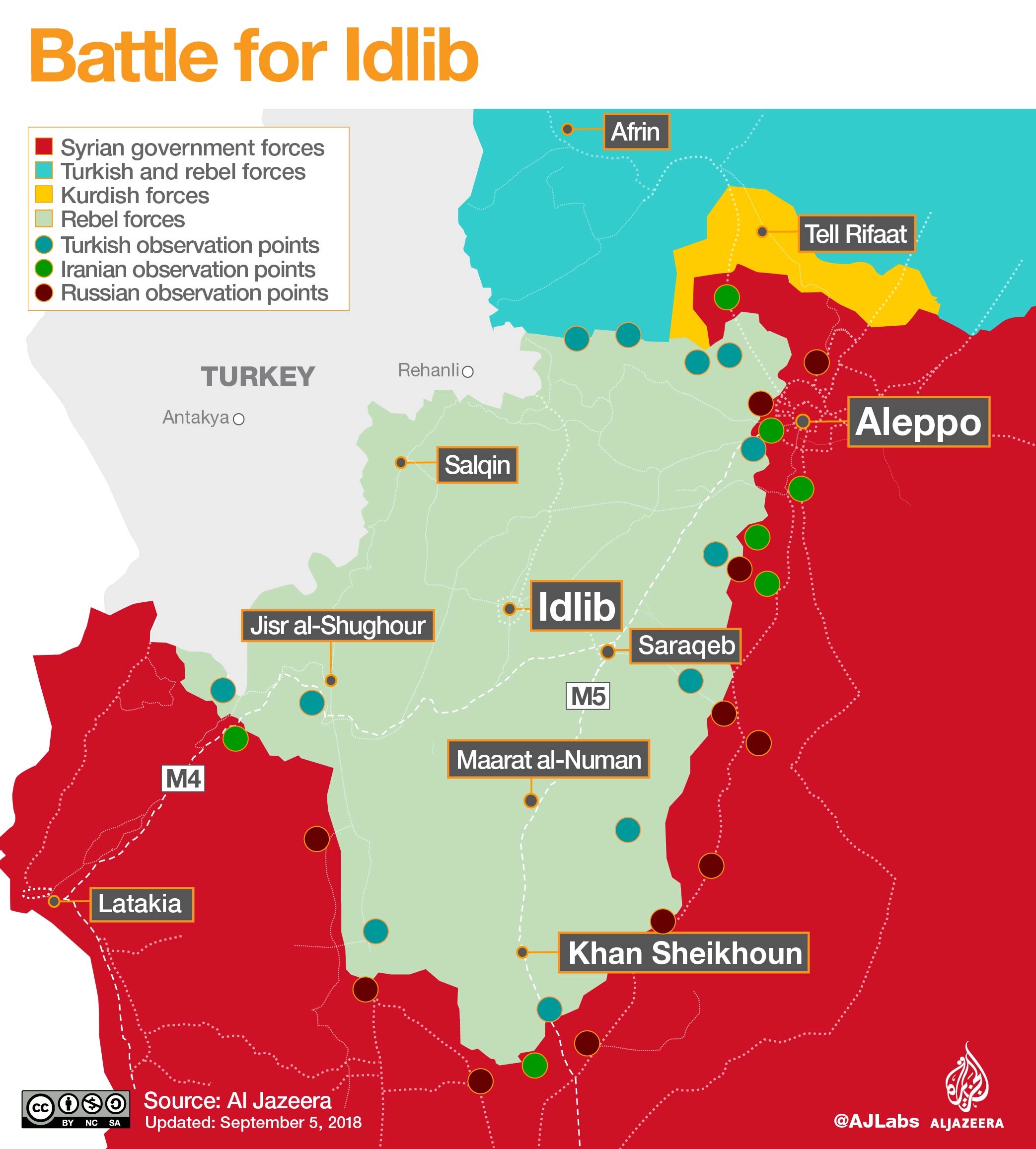Fearing chemical attacks, Idlib father makes gas masks from cups
In an effort to protect his children, one father is building gas masks from paper cups and plastic bags.

Fearing the worst in the looming battle for Syria’s last rebel-held stronghold, one father is doing everything he can to protect his children, and that includes making gas masks from paper cups and plastic bags.
Hudhayfa al-Shahhad, who lives in the northwestern province of Idlib, is determined to make sure that he and his family will be ready in the event of a chemical weapons attack, and has even dug a cave under his home to sit out any bombings.
Keep reading
list of 4 itemsFighting in southern Syria following bombing kills 17: War monitor
Anti-Assad Syrians lead protests against prison torture by rebel group
Car bomb kills seven at crowded market in Syrian town near Turkish border
“I learned how to make them on YouTube,” the 27-year-old policeman said, demonstrating the rudimentary homemade masks, which he hopes may spare his three young children from the potentially deadly effects of any gas attack.
As his daughter peers over his shoulder, he pushes medical gauze down into each cup, which is decorated with pictures of mangoes, bananas and other fruit.
Next, he heaps in several spoonfuls of charcoal, some cotton wool, and then another layer of gauze so the wearer does not breathe in any of the black dust.
Shahhad uses sticky tape to seal it all in, and snips a dent into the top of the cup where the wearer can place their nose.
Shahhad, like his neighbours, is concerned by reports that Syrian government forces have amassed around Idlib in recent weeks, sparking fears of an imminent air and ground attack to retake the last major opposition bastion.
“We’ve been hearing the regime and Russia threaten to bomb us with chemical weapons,” Shahhad said.
“We had to make these masks to protect our women and children just in case,” he says.
For a final touch, he places the cup-shaped filter into the snipped corner of a large translucent plastic bag.
He helps his three-year-old son don the mask, who clutches the cup with his hand, while the plastic bag covers his whole face and shoulders.
Underground cave
The Syrian government has been repeatedly accused of carrying out chemical attacks throughout the seven-year war, which has claimed an estimated 500,000 lives.
Agents used include chlorine but also the more deadly sarin nerve gas.
The government and its ally Russia have consistently denied the accusations, blaming opposition fighters instead.
But international investigators have found that on at least three occasions, Damascus unleashed chemical weapons on civilians.
This year in April, an alleged chemical attack on the then rebel-held town of Douma near Damascus, claimed the lives of more than 40 people, medics said.
After the attack, forces loyal to the government swiftly took back the area under a Russia-brokered surrender deal.
Shahhad is also making sure he and his family can take shelter underground from any air attacks. Carrying a torch, he leads the way down steps from his basement and into a cavernous shelter dug out of the grey rock.
Large jars of pickled cucumbers have been lined up in the gloom, beside a mattress on a wide seat made of bricks.
“We’ve been digging this shelter since 2012 because of the bombardment, but we started working again on it after the threats,” he says, clutching his one-year-old daughter on his lap.
“The houses above can’t withstand the bombing,” he said.
The United Nations has warned that a large-scale offensive on the northwestern province, which is home to three million people, would result in a “bloodbath” and lead to the “worst humanitarian catastrophe in the 21st century”.
